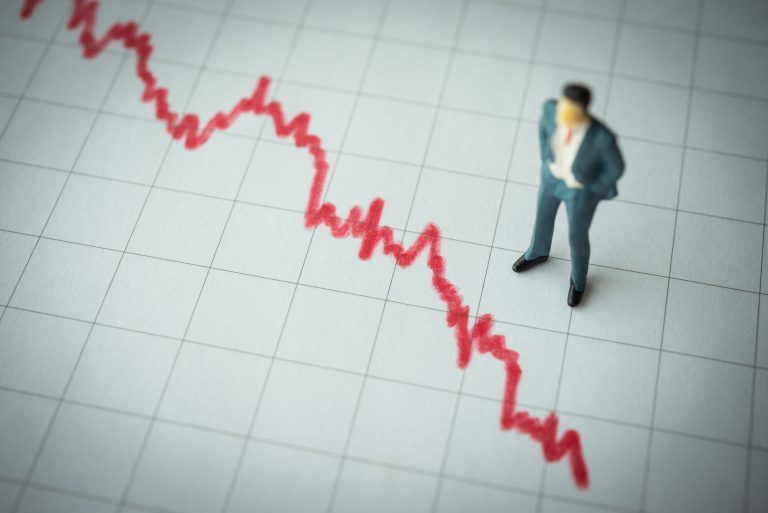The market has been almost unrelentingly positive over the past decade. There have been some small bumps, including uncertainty over Brexit and Trump’s trade disputes, but ultimately, the economy moved on.
So for many people, particularly those who have only started investing in the last ten years, the recent volatility has been a little unnerving. Most financial sectors have been impacted, with losses of 10% – 30% in the main equity regions and even higher losses within specific companies and industries.
So, what has caused the recent volatility (aside from Coronavirus), should you be investing, and what are the best ways to protect your money?
What Has Caused the Recent Market Fall?
Coronavirus is certainly part of the problem, but it doesn’t tell the whole story.
There have been three main impacts of the virus on financial markets:
Reduced investor confidence. This means that fewer people are buying shares and many are selling them. This reduces share prices. It is not necessarily a reflection of the company’s long-term prospects, but of how investors view the company at that particular time.
Reduced demand. More people are staying at home rather than spending money on products and services. For many, this is not a choice but is enforced by a reduced household income.
Reduced productivity. Many of the companies which are not impacted by lower demand are affected by limited productivity. There are several reasons for this, such as a reduced workforce due to illness and isolation measures, problems with suppliers and delays in getting products to consumers.
While Coronavirus has dominated the headlines, part of the market volatility has been caused by oil price fluctuations, resulting from disputes between Saudi Arabia and Russia. While this in itself may have had a limited and short-term impact, the coincidental timing worsened the market dip.
But the main reason for the market fall is quite simply that it was inevitable. Economic cycles create peaks and troughs, with a major event leading to a substantial decline (and often a recession) around every ten years or so. Coronavirus is the catalyst, but if this hadn’t triggered a drop, something else would have.
Investing does not mean avoiding the downturns, it means planning around them.
When Will It Recover?
The short answer is we don’t know, and nor does anyone else.
A bear market is defined as a market fall of at least 20%. In the past 30 years, we have experienced four bear markets. The longest of these started in March 2000, and lasted for two and a half years. The financial crisis which most of us remember most clearly started in October 2007 and lasted only 17 months.
Over the same timeframe, we have had three bull markets, or periods of sustained growth. The shortest of these lasted five years, and added 101.5% to investment values. The most recent bull market has lasted from March 2009 to February 2020, and has added over 400% to valuations.
The current bear market is slightly different, in that it has a single perceived cause (even if there are other factors at work). It would be reasonable to assume that things will start to recover when the virus has passed its peak. More people will become immune and there may even be a vaccine or better treatments available. The economic shutdown can’t continue forever, and while some industries face a dramatic decline (such as high street retail) others are thriving (supermarkets and online services). Some industries will suffer in the short term, but will sharply bounce back once this is all over (hospitality and tourism).
So while we don’t know when a recovery will occur, we do know it will happen at some point. And in this situation, more than most, there will be clear indicators when the situation is starting to return to normal.
When Should You Invest?
There is no big secret to timing the market. Most of the information available to investors has already been acted on, and is priced into the market. This is why the market dipped sharply at the start of the Coronavirus crisis, but has remained fairly steady, even when we moved towards a full lockdown. The expectation was already there and had been acted on by investors.
If you have money to invest, the best time is now. By waiting for the bounce-back to start, it is likely that you will miss out vital growth early on in the recovery. While there may be some short-term volatility, over a five, ten or twenty year investment term, it is highly likely that the eventual returns will be positive.
Another option is to make small, regular investments such as monthly ISA or pension contributions. This is a lower risk option, as it avoids committing too much money to the market at one time. If the bear market continues, this means buying more shares at reduced prices, resulting higher gains when the market recovers.
As bear markets are a regular feature of investing, a fall in market values is not a reason to put off your investment until confidence returns.
What Should You Invest In?
While there may be speculation about which industries and sectors will benefit most from the recovery, most of this is noise and short-term thinking.
The reality is that we don’t know what is going to happen and how this will affect any financial market over the long term. While supermarket shares may look like a strong prospect now, the next bear market could play out very differently.
The best option is to hold a diversified portfolio across a wide range of asset classes, industry sectors and geographical regions. This provides the greatest chance of benefiting from the upside, while spreading the risk across your investments.
Should You Take Money Out?
When investments fluctuate, we refer to this as volatility. This is completely normal and expected.
When you take money out during a downturn, this turns volatility into an actual tangible loss. While you might protect your money against further losses, the reality is that by the time signs of a recovery appear, it will be too late to benefit from it.
A strong investment strategy depends on remaining invested for the long-term, accepting that the rises will offset the falls.
For this reason, you should never invest more than you can afford, and you should keep a healthy cash reserve aside to cover any emergencies.
Please don’t hesitate to contact a member of the team if you would like to find out more about your investment options.
The information provided on the pages, blogs and articles contained within this website are solely for information purposes only and do not constitute financial advice. Professional advice should always be sought from a financial adviser.



